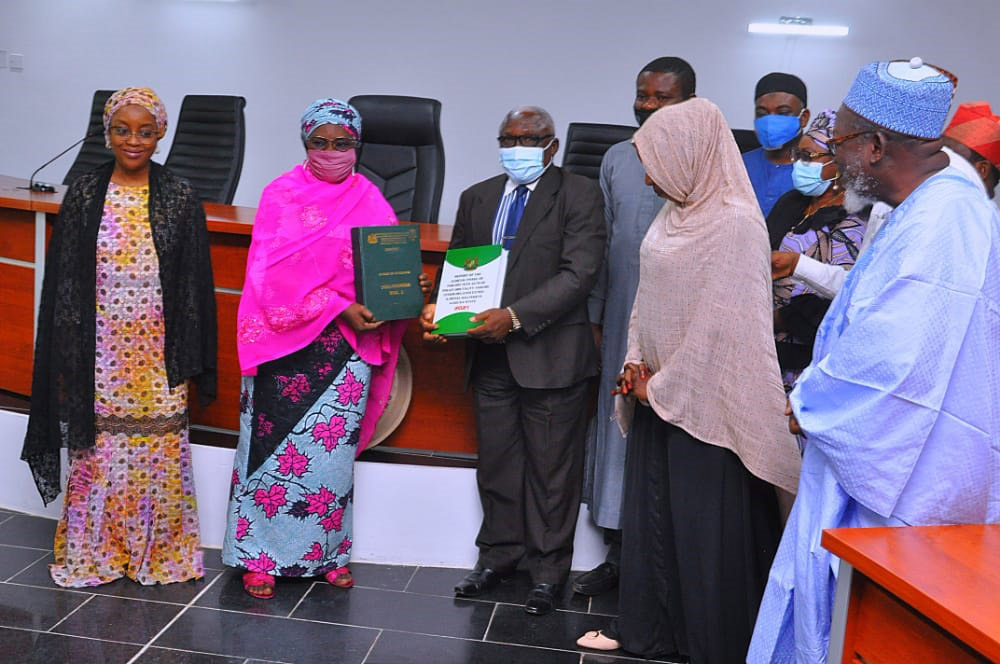Business
Group Expresses Displeasure Over Hike In Banks’ Cash Reserve Ratio

Shareholders under the aegis of Independent shareholders Association of Nigeria (ISAN) have expressed displeasure over the hike in banks’ mandatory Cash Reserve Ratio (CRR).
ISAN’s founder, Mr Sunny Nwosu, expressed the displeasure in a statement in Lagos during the week.
The shareholders urged the apex bank to reduce the CRR to 15 per cent from 27.5 per cent or pay interest on the restricted deposits to the banks, noting that the banks has over N12 trillion restricted deposits with the Central Bank of Nigeria (CBN).
Nwosu said the decision by the apex bank to review most bank charges and fees downward, coupled with the hike in the CRR, amid expectations of increasing regulatory headwinds, was currently causing a setback in the sector.
The CRR is a monetary policy tool used by the CBN to control money supply in the economy.
The CRR empowers the central bank to sequester up 27.5 per cent of customer deposits held by commercial banks, effectively restricting the banks from accessing the money.
The apex bank debited a chunk of deposits of banks since 2019 as part of a mutually inclusive CRR and Loan to Deposit Ratio policy that targeted at driving lending more to private sector.
The CBN Governor, Mr Godwin Emefiele, had recently explained that the move was part of efforts to curb excess liquidity on the banking system, already adjudged as a contributor to the resurging inflation trend.
But Nwosu said the tight monetary policy of the CBN has continued to pummel the banking sector with multiplier effect on the equities market and loss of value addition to shareholder.
According to him, “After serious evaluation of the CRR and current AMCON scam, ISAN insist that CBN should pay interest to banks on restricted deposits to enhance banks obligation to the real sector.
“In the alternative, the apex bank should reduce the CRR to 15 per cent to enable banks declare meaningful dividends that would encourage domestic investments.
“We urge CBN to have a rethink on CRR and among other things, to enhance the performance of the financial sector of the economy”.
He said the challenge of the Nigerian economy made it imperative for CBN to pay interest on restricted deposits.
“Banks restricted deposits with CBN are idle funds. We argue that if these funds are with banks, certainly it will enhance their earnings, loans to real sector and returns for shareholders”, he said.
He pointed out that continued debits of CRR by the CBN had put the banking sector under serious threat, noting that the apex bank was denying banks the ability to earn an income in customer deposits.
A breakdown of some banks debited through the mandatory CRR showed that Zenith Bank Plc’s restricted deposit with CBN rose from N680.26 billion in 2019 to N1.33 trillion in 2021, while FBN Holdings Plc’s restricted deposit hit N1.32 trillion in 2020 from N843.44billion in 2019.
FBN Limited and FBN Quest Merchant Bank Limited had also restricted balances of N1.3 billion and N39.37 billion respectively with CBN as at December.31, 2020.
Access Bank Plc’s CRR deposit with CBN also grew to N1.31 trillion or an increase of 54 per cent from N848.85 billon in 2019, while Guaranty Trust Holdings Plc (GTCO) reported N1.03 trillion mandatory reserve with CBN in 2020 from N443.65 billion reported in 2019.
United Bank for Africa’s mandatory reserves with CBN also increased to N1.10 trillion in 2020 as against N832.11 billion in 2019.
The National Coordinator, ISAN, Mr Anthony Omojola, said banks’ interim reports in 2021 showed poor revenues following higher borrowing costs as CRR hike further complicated banks’ currency flow already hit by fallout from the Covid-19 pandemic and the oil price shocks.
Omojola said the CBN warehousing of about N1.2 trillion from the banking system since it raised the CRR by five per cent to 27.5 per cent coupled with the AMCON sinking funds called for serious concerns by all stakeholders.
Transport
Automated Points Concession : FAAN Workers Gave 72hrs To Revise Decisions In PH

Transport
FAAN Announces Pick-Up Points for Go-Cashless Cards

Business
Fidelity Bank To Empower Women With Sustainable Entrepreneurship Skills, HAP2.0
-
Politics3 days ago
2027: NIGERIANS FAULT INEC ON DIGITAL MEMBERSHIP REGISTER DIRECTIVE
-

 Environment3 days ago
Environment3 days agoLAWMA Director Says Sweeping Reforms Have Improved Waste Collection
-
Politics3 days ago
LP Crisis: Ex-NWC Member Dumps Dumps Abure Faction
-

 Politics3 days ago
Politics3 days agoUmahi Dismisses Allegations On Social Media, Insists On Projects Delivery
-

 Sports3 days ago
Sports3 days agoAbia Not Sure To Secure continental Ticket
-
Politics3 days ago
NATASHA ELECTRIC VEHICLES INITIATIVE IN KOGI CENTRAL
-
Sports3 days ago
La Liga: Yamal Records First Career Hat-trick
-
Politics3 days ago
IT’S A LIE, G-5 GOVS DIDN’T WIN ELECTION FOR TINUBU – SOWUNMI

